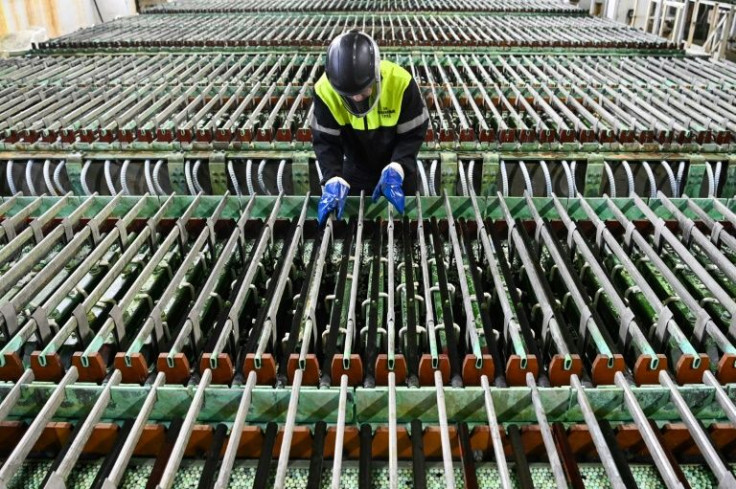Ukraine Crisis: Russian Nickel A Hard Nut To Break For The West

After the Russian invasion of Ukraine Feb. 24, NATO was forced to refrain from sanctioning Russian nickel-producing behemoth Norilsk Nickel and Vladimir Potanin, its oligarch chairman, fearing for the production of Electric Vehicle (EV) batteries.
Though Western sanctions cover Russian financial institutions and individuals close to President Vladimir Putin, the country's commodity export market is spared due to its strategic importance.
Sensing a high possibility of sanctions against problematic nickel metal, panic buying was witnessed on the London Metal Exchange, the main commodities market. Chaos broke out on the LME, forcing the exchange to halt trading for a week.
Russia is a major producer of primary nickel products, such as the refined nickel used in EV batteries. Norilsk Nickel, also known as Nornickel, is the world's largest nickel producer with its production centers located in Siberia. Norilsk is among the limited number of firms authorized to sell a specialized form of nickel on the LME.
Electric vehicle battery costs have become dearer at a time when global sales of EVs rose 106.8 percent last year, accounting for close to 9 percent of total sales, said the International Energy Agency. The shortage will prevent Germany, the EU's leading economy, to roll out 15 million electric vehicles by 2030.
Nickel is the preferred metal to produce EV batteries as it allows EVs to travel far on a single charge, which drivers insist is a quality trademark. The batteries that Tesla, the world's biggest EV maker, is using for its Model 3 vehicles in North America are nickel-cobalt-aluminum oxide, which contains 70 to 80 percent nickel by weight, and 10 to 11 percent lithium.
Tesla has hiked prices on all versions of its vehicles in the U.S., and Elon Musk, its CEO, blamed it on the rising cost of raw materials. Earlier, Musk tweeted, "Nickel is our biggest concern for scaling lithium-ion cell production."
Nickel is a sought-after metal in the U.S. as it produces less than one percent of the world's total and mainly depends on one facility, the Eagle Mine on Michigan's Upper Peninsula. Since processing facilities are conspicuous by their absence in the U.S., Eagle Mine exports to Canada and overseas.
The market impact of the nickel shortage found an echo in political circles. Senator Joe Manchin (D-W.Va.), a huge fan of Joe Biden's Build Back Better package, this month painted a bleak future for the U.S. EV industry
"I don't want to have to be standing in line waiting for a battery for my vehicle because we're now dependent on a foreign supply chain," Manchin said at an energy conference in Houston.
The U.S. along with 30 other member nations of the International Energy Agency has launched a critical minerals security program to face the volatile global market for nickel and other rare earth elements as these metals also face global supply chain constraints imposed by the pandemic.
Russia churns out 11 percent of the world's nickel, and its sulfur-rich ore yields the high-grade Class 1 nickel to make EV batteries. From January to November 2021, the majority of Russia's class 1 nickel was shipped to China, the world's leading battery and EV manufacturer, and the Netherlands and Germany received about 16 percent.
Automakers hinted at making EV battery formulations that can work without nickel, but it comes with some concessions in driving range. Volkswagen and other automakers looked at developing alternate technologies that use cobalt in place of nickel. But the price of cobalt is currently on the rise.
Will the nickel shortage prove to be a speed breaker for the electric car revolution, considering supplies do not match the crucial demand?





